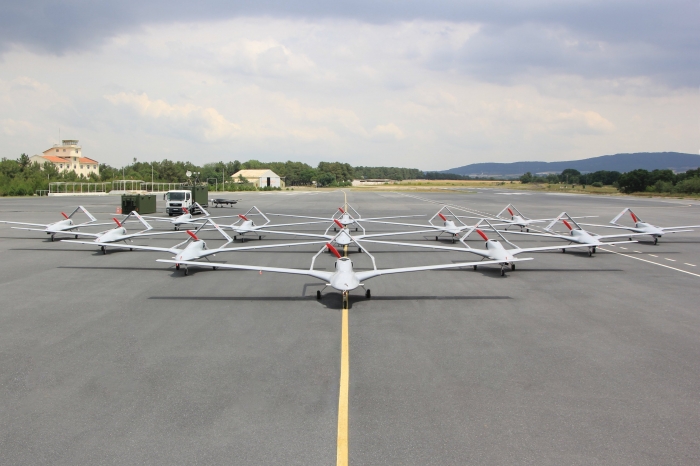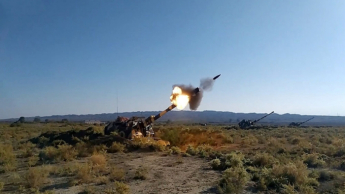Turkey, Azerbaijan and Ukraine: new prospects for cooperation

|

Bayraktar TB2 unmanned aerial vehicles (UAVs) are seen parked at an airfield in Istanbul, June 11, 2020. (AA Photo)
Ukraine recognized Azerbaijan as its strategic partner and ally, as well as Turkey.
Ukraine recognized Azerbaijan as its strategic partner and ally, as well as Turkey. And this, in my opinion, is a very important and positive moment, since these states are building up their potential, becoming leaders in the region. Indeed, we have a huge potential for cooperation, which, I believe, to my great regret, despite the status of a strategic partnership, remains not fully appreciated.
If we talk about the military-industrial complex, then I support the words of the President of Azerbaijan, Ilham Aliyev, who quite rightly says that the military-technical cooperation between Ukraine and Azerbaijan developed very actively in the 90s and Ukraine supported Azerbaijan, helped in fact to recreate the military industrial complex. Now we are talking about a small cooperation between our countries. And this, I think, is a big flaw and a problem.
The fact is that there is potential in the field of military-technical cooperation between Ukraine and Azerbaijan. I think it concerns both the missile system and the rocketry sphere. Including joint production with Turkey and Azerbaijan of drones, high technologies, radars, small arms, artillery and many other areas that will be of interest to both Ukraine and Azerbaijan. Therefore, in these areas cooperation, it is simply necessary to develop and lobby.
As for Turkey, in recent years, cooperation in the military-technical sphere has been gradually developing. There are certain successes. The most famous achievement is related to the Bayraktar program. The Ukrainian-Turkish enterprise will produce drones on the territory of Ukraine.
Why Turkey chose Ukraine, I think, is because we have such an enterprise as Motor Sich, which is capable of producing aircraft engines of various types and modifications, which is very interesting. Since there are very few such enterprises in the post-Soviet space, as well as in Europe in general.
I think there may be potential for cooperation with Azerbaijan. Therefore, based on the fact that an aircraft engine is a very important and necessary component, it was decided to localize production here. In addition, there is a potential for cooperation with Turkey in the production of ships, boats, equipment needed to protect the coastline, high technologies, which would be very important.
Summing up, I can say that if Ukraine, Azerbaijan and Turkey develop cooperation in the military-technical sphere, then I think that it will be possible to create a very serious triangle of regional leadership that can challenge other states. It would be very helpful for everyone.
In addition, the military-industrial complex is always very promising, since it brings good profits and income to the budget. I think it would only be beneficial. It is very important now to give real meaning to the relations between Ukraine and Azerbaijan through military-technical cooperation.
The author is Head of the Ukrainian Center for Military Legal Research.
(If you want to contribute and have specific expertise, please contact us at [email protected])
The Rocket and Artillery formations of the Azerbaijan Army conduct live-fire exercises in accordance with the combat training plan for 2021, the Ministry of Defense of Azerbaijan told Baku Tribune.
LAST NEWS






.jpg&h=67&w=67&zc=1&q=100)













